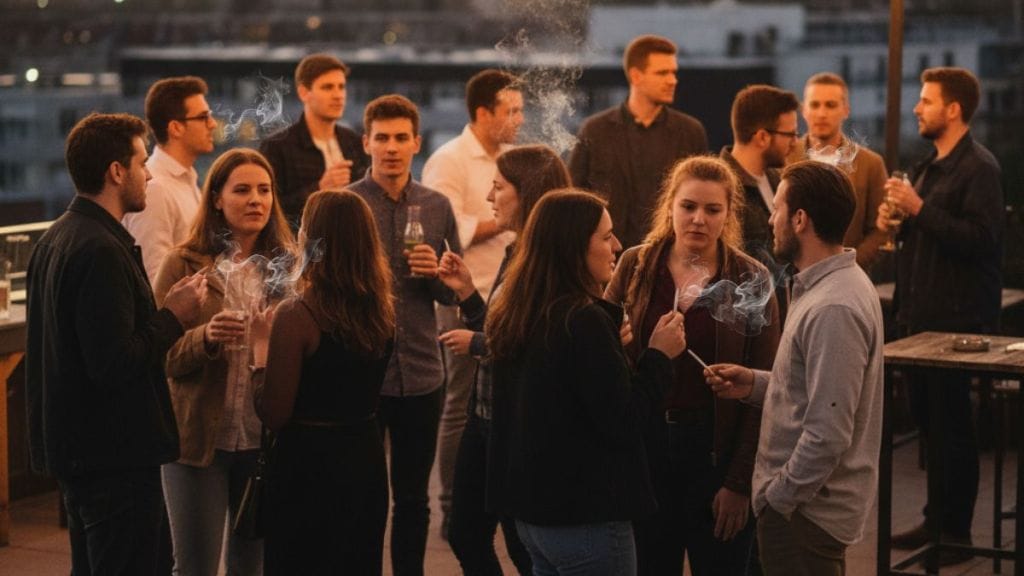Diwali parties lined up and worried if you will break your promise to quit smoking? Or, concerned if you’re strong enough to say no to social smoking? Understand the difference before you take the call.
What is social smoking? Often called ‘intermittent or light smoking’, it mostly occurs in social situations, such as parties or gatherings. While it is not a medically identified term, social smokers often consume fewer than 10 cigarettes a day, and may not identify themselves as dependent smokers. However, they will be expected or understood to be smoke in social situations. The habit of social smoking can persist for years and is common among mature adults, not just youth experimenting, as per a National Library of Medicine report, Social Smoking among Intermittent Smoking (2016).
Health risks of social smoking
The European Respiratory Society found that social smokers are still at a much higher risk of lung cancer and respiratory diseases than non-smokers. For example, social smokers have approximately a 2.5 times higher risk of death from respiratory disease and 8.6 times higher risk of death from lung cancer compared to non-smokers. Their risk for lung cancer can be up to two-thirds that of heavy smokers (those smoking 20+ cigarettes daily).
More often that not, social smoking is linked to an activity like drinking alcohol, and thus, might not happen everyday.
Social smokers tend to live in a misconception that they aren’t addicted to nicotine and can stop anytime they wish. In fact, this false belief can be detrimental for their health, since regular exposure to tobacco might lead to a gradual dependence. Combining free-will, social situations, and the frequency, it is easy to convert from a social smoker into a habitual one.
Doctor’s verdict
Dr Brian Hoeflinger called smoking ‘one of the worst things you can do to your body’ as he explained that it ‘affects all the blood vessels in your body’ which can result in heart attacks or a stroke, as well as your other organs, quoted a Labbible report.
He cautioned that smoking can have widespread effects on nearly every organ in the body, increasing the risk of vision impairment, type 2 diabetes, and several forms of cancer, particularly lung cancer. According to the doctor, there are no real health benefits to smoking; the only advantage lies in quitting as soon as possible, allowing the body to begin repairing the damage.
While the body does have the ability to heal once a person stops smoking, some harm can take years to reverse. For those who consider themselves “social smokers” and believe their habit isn’t serious enough to quit, this mindset can prevent them from ever beginning the journey toward true recovery.

